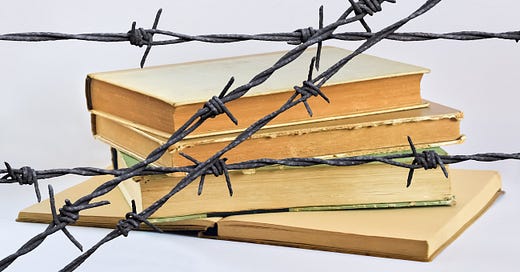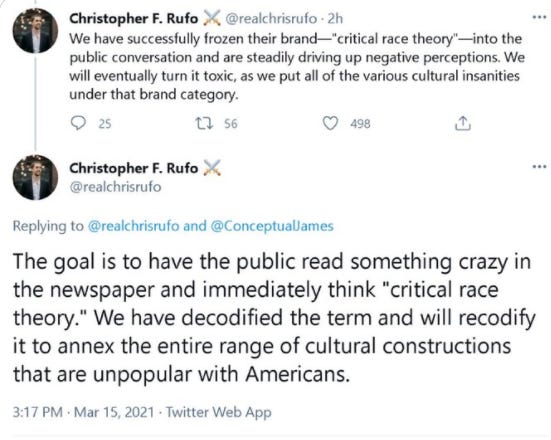
It turns out that the “f*ck your feelings” crowd actually cares very much about their own feelings.
In fact, they feel strongly enough about their feelings that they are banning books that might hurt them. So we get stories like this from Pennsylvania:
Last October, the all-White [Central York] school board unanimously banned a list of educational resources that included a children's book about Rosa Parks, Malala Yousafzai's autobiography and CNN's Sesame Street town hall on racism.
The good news is that the board has now backed off the book ban. But it was, nevertheless, a revealing episode. Will Bunch writes:
The mess in the Central York School District, which includes several suburban townships just north of York, in a county where Donald Trump won 62% of the vote, started after some parents and teachers had hoped to bolster the curriculum around anti-racism in the wake of the George Floyd protest marches in spring 2020. The move backfired when some parents started complaining about the reading list proposed by a committee. “I don’t want my daughter growing up feeling guilty because she’s white,” one parent, Matt Weyant, told a recent school board meeting. Then, panicked school board members imposed “a freeze” on students using the books.
This, however, pales in comparison to what has been happening in Tennessee, where the Republican governor has signed a new law that mandates that schools cannot teach lessons that make students feel “discomfort, guilt [or] anguish” because of their race or sex.
The new law has become a flash point in the affluent Franklin district, where an activist mom named Robin Steenman has formed a “Moms for Liberty” group that is objecting to books and lesson plans— especially about the civil rights movement — that she says is “too focused on the country’s segregationist past, making kids feel uncomfortable about race.” Reports Reuters:
Members of Steenman's group pored over the second-grade books, marking up those they found objectionable with highlighters and sticky notes. On June 30, soon after the new law was signed, Steenman sent an 11-page letter outlining potential violations to the Tennessee Department of Education.
Among the books Moms for Liberty deemed inappropriate are “Martin Luther King Jr. and the March on Washington” and “The Story of Ruby Bridges,” about the Black 6-year-old who integrated a Louisiana public school in 1960.
In their critique of a book on singer Marian Anderson, for example, they wrote:
Their critique of the book “Martin Luther King, Jr. and the March on Washington” objects to references to the “blasting fire hoses” that had been turned on “children who marched, sang and prayed” during demonstrations.
Also objectionable: references to “Bull” Connor and the hateful racism that civil rights activists encountered from all-white police forces.
Their critique of “The Story of Ruby Bridges,” objected to depictions of the angry white mob that greeted the young girl when she attempted to go to school.
Oddly enough, Steenman’s group also highlighted the account of Ruby praying for God to forgive the white mob, which the “Moms for Liberty,” complained, made a “direct comparison between white people and those that crucified Jesus.”
In her letter, Steenman took particular exception to the number of times the word “injustice” appears in the Teacher’s Manual.
And, of course:
Steenman insisted that such lessons violated the explicit provisions of Tennessee’s new law, which was passed as part of the effort to combat what critics insisted was Critical Race Theory.
In reality, though, the new attempts to ban books and micromanage discussions of race and justice, have little to do with CRT. But they do reflect the campaign to stigmatize any discussions, ideas, or narratives about that might be uncomfortable — or hurt someone’s feelings.
In that sense, they are the inevitable result of the cynical strategy laid out by anti-CRT activist Christopher Rufo:
So don’t expect the book bans to end anytime soon
Let Them Fight.
Part I:


Part II:

Part III:

Part IV:
Quick Hits
1. The ‘We’re Just as Bad as Russia’ Crowd
Make sure you read this excellent takedown by Cathy Young in today’s Bulwark. No, Glenn Greenwald and Sohrab Ahmari, censorship in the U.S. is not comparable to what goes on in Putin’s Russia.
There was a time when mocking the notion of American freedom and arguing that we just have more hypocritical and sophisticated repression than places like Russia was a province of the left. Now, such arguments—still a hodgepodge of false equivalencies, bad-faith analogies, and stunningly ignorant assertions—have become an area of agreement between large segments of the left and the right. The effect is still the same: to whitewash repression abroad in order to score political points at home.
It’s a particularly odd position for self-styled conservatives, who still claim the mantle of patriotic devotion to “American greatness.” “Actually, we’re a repressive regime that has no business talking about freedom and may even be worse than regimes that murder journalists”: definitely not your parents’ patriotism.
2. Nicki Minaj and the Death of Responsibility
Chris Truax writes in today’s Bulwark that all dunking aside, the whole my-cousin’s-friend’s-swollen-balls thing was really bad.
Every generation has its share of narcissistic celebrities. But in the past, that sense of entitlement was leavened with what might be called noblesse oblige. It wasn’t that long ago that baseball players were expected to be role models. I’m sure that earlier celebrities had just as many odd and occasionally dangerous ideas as some modern ones, but whether through a sense of responsibility to their fans or fear of them, they usually kept them to themselves. You can’t imagine, say, Lawrence Tureaud, casually passing along anti-vaccination rumors.






















That MTG meme is something else. We now have congressional staff creating this stuff?
And to the blond, true American youth in the meme: The Hitler Youth wants their uniform back.